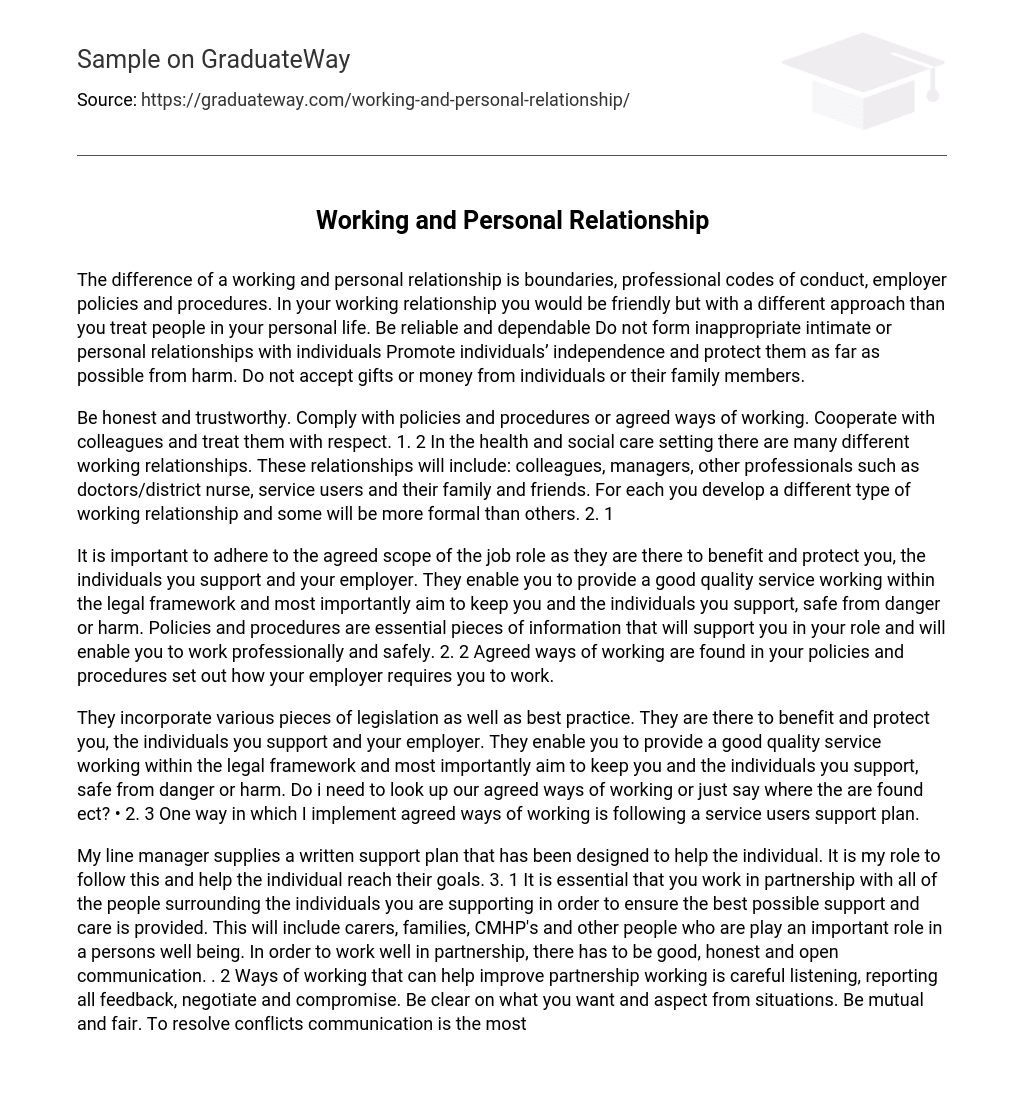The difference between a working relationship and a personal relationship is determined by the establishment of boundaries, adherence to professional codes of conduct, and compliance with employer policies and procedures. In a working relationship, it is crucial to maintain a friendly attitude while adapting one’s behavior compared to interactions in personal life. It is essential to demonstrate trustworthiness and reliability, avoid engaging in inappropriate intimate or personal relationships with others, and actively promote individual independence while reducing potential harm. Lastly, it is recommended to reject any gifts or monetary offerings from individuals or their families.
Honesty, trustworthiness, adherence to policies and procedures, and cooperation with colleagues are all crucial in the health and social care setting. This extends to working relationships with managers, other professionals (such as doctors or district nurses), service users, and their family and friends. The level of formality may vary among these relationships.
It is essential to adhere to the agreed scope of your job role as it has multiple benefits. This includes protecting yourself, the individuals you support, and your employer. By following this scope, you can provide a high-quality service while also complying with legal requirements. Moreover, it guarantees the safety of both yourself and those you support.
Policies and procedures play a crucial role in supporting your job by providing valuable information. They enable you to work professionally and safely within your role. Your employer’s policies and procedures specifically outline the approved methods of working.
By following various legislations and best practices, you can gain advantages and safeguard yourself, the individuals you support, and your employer. These guidelines are designed to assist you in delivering excellent service while adhering to the law and prioritizing the safety of everyone involved. When it comes to implementing agreed upon methods of working, I personally rely on adhering to a service user’s support plan.
My line manager provides a support plan to assist the individual, and it is my responsibility to follow this plan and help the individual achieve their goals. It is crucial to work together with all the individuals involved in the person’s support, including carers, families, CMHP’s, and other key figures in their well-being. Effective partnership working requires good, honest, and open communication. Ways to improve partnership working include active listening, providing feedback, negotiation, compromise, clarity in expectations, and fairness. Resolving conflicts is essential and can be achieved through effective communication, calmly expressing feelings, discussing with relevant parties, and potentially involving a mediator. The necessary skills and approaches for conflict resolution are discussed in section 3.3.
The key elements for successful partnership working include communication, active listening, staying calm, accepting different views and opinions, and having a mutual person in the discussion. It is important to be open in communication and be willing to cooperate and compromise when seeking advice and support on partnership working. If encountering difficulties in working with another college, seeking advice from a mutual source can be helpful. Similarly, resolving conflicts with an individual can be achieved by approaching a line manager or discussing it in supervision.





